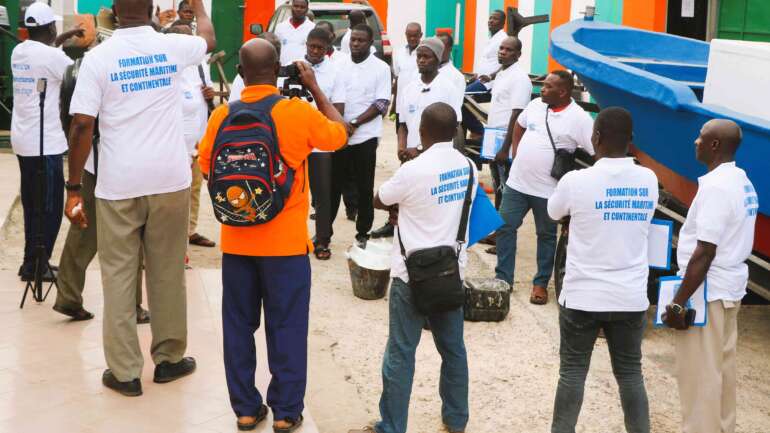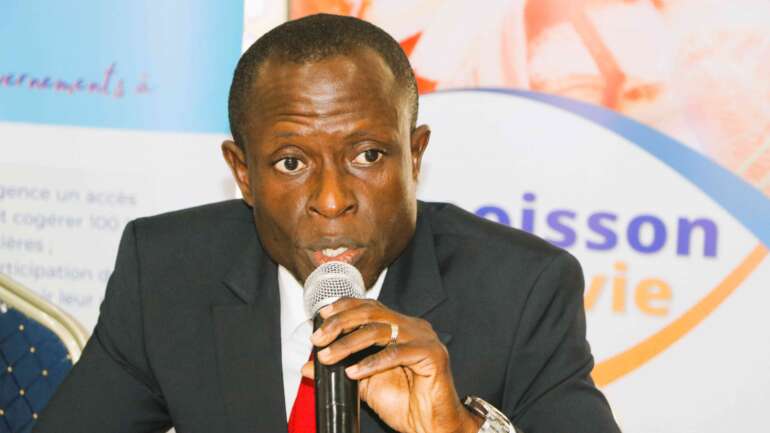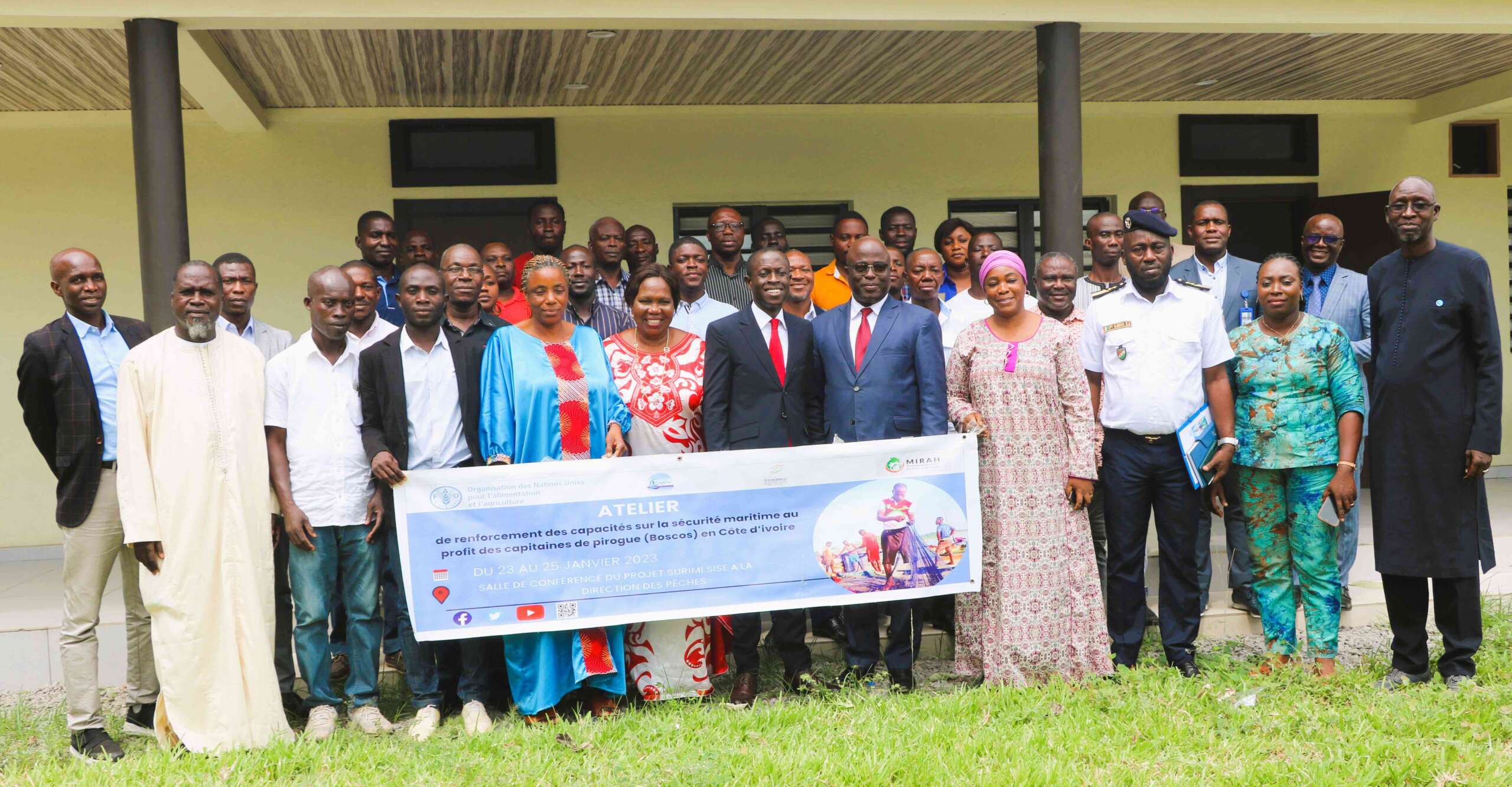The African Confederation of Professional Organizations of Artisanal Fisheries (CAOPA) organized from 23 to 25 January 2023, in Abidjan, with the financial support of the FAO and in partnership with the National Federation of Cooperative Societies and Actors of the Fishing Sector of Côte d’Ivoire (FENASCOOP-CI), a training workshop for the captains of canoes in Côte d’Ivoire.
The objective of the seminar is to make young captains or Boscos o small-scale fishing sector aware of the safety issues, the need to conserve fishery resources in a context of increasing scarcity of resources and a responsible commitment to action.
During 72 hours, participants were familiarised with the legal framework defining the criteria for appointing captains, the selectivity of fishing gear, safety at sea, new geolocation technologies, among others.
They had the opportunity to immerse themselves in the cooperative company “BAK and FILS” located in Lokodjro (commune of Atékoubé), and a manufacturer of worm fiber dugout canoes; a Boscos; and a manufacturer of FADs (fish aggregating devices).
The training is addressed to 25 Boscos from the cooperative society’s members of FENASCOOP-CI.

Speech
The Technical Advisor of the Ministry of Animal and Fishery Resources, Dr N’Gandi SERGES, presided over the opening ceremony.
In his speech, he stressed that the fisheries sector in Africa occupies an important place in economic and social development policies and strategies due to its significant contribution to food and nutritional security.
“Fish from fisheries remains a key resource for people, whether for food, nutrition, income or livelihood,” said Dr N’Gandi.
In Côte d’Ivoire, he said, the fisheries sector plays a key role in the economic, social and nutritional spheres.
He added: “Fish is the primary source of animal protein and its consumption has exceeded 25 kg per capita per year since 2020, despite the low level of national production, which is generally between 100,000 and 120,000 tonnes per year.
According to the Advisor, to meet this demand, Côte d’Ivoire imported about 600,000 tonnes of fish in 2020.
“Despite the importance of fisheries in our country’s economy, it still faces many challenges, including overexploitation of most fish stocks, land-based pollution, negative impacts of maritime transport and the dumping of various wastes, including plastics, at sea,” he said.
The challenges of fishing are numerous and it is together that we can meet them”.
For a sustainable management of fisheries resources, Dr N’Gandi wants “special attention to be paid to maintaining the productivity of all exploited ecosystems, and to promoting sustainable and environmentally friendly technologies with the participation of all stakeholders from the private sector, policy makers, industry and non-state actors“.

For him, this workshop contributes to the achievement of this condition without which, he says, “it will be difficult for us to face the success of these great challenges. The challenges of fisheries are many and it is together that we can meet them.
The technical adviser invited the fisheries actors to work responsibly for the good management of fisheries resources. Without your collaboration and sincere involvement, it would be difficult to achieve sustainable management of fisheries resources in our waters,” concluded Dr N’Gandi Serges.
The vice-president of FENASCOOP-CI, Mrs. Oulou Monique Debora GNENE, on behalf of the president, Mamadou Bakayoko, underlined: “We are all aware of the many challenges facing the animal and fishery resources sector in the face of the many changes of all kinds in the world. And safety on our journey and during the exercise of our activities is one of our major concerns in order to safeguard the lives of our crews and ensure peace in our working environment.
The President of CAOPA said that the training of the Boscos is an absolute necessity. He asked, “Who is a captain? How does one become a captain? What is his responsibility on board of his boat?
For Gaoussou Gueye, “given the issues and challenges we face, notably the gas and oil platforms along our coasts, there will inevitably be delimitations at sea level. And our areas of activity will be reduced. So it is a heavy responsibility to have a boat with human lives on board.
Referring to the accidents and disappearances of people at sea, Mr Gueye stressed the need to have trained and well-informed men to manage their crew and their boat.
Watch the closing video of the workshop
In addition to the Boscos, the other participants are from the fisheries administration, development partners related to the fisheries sector, as well as fishermen’s community leaders.
It should be noted that the Côte d’Ivoire training is the third of its kind that CAOPA has organized since December 2022.
Mamadou Aliou DIALLO


